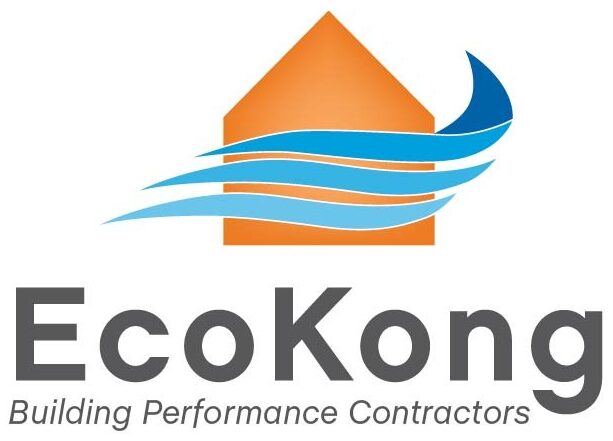If you don’t find the answer to your question here, please don’t hesitate to contact us, or schedule and appointment.
FAQs
We've prepared a list of frequently asked questions to help you.
What is a Building Performance Energy Audit?
The Building Performance Energy Audit is the first step toward improving your home’s energy efficiency and reducing energy bills. During this comprehensive energy audit, the BPI certified analysis tests and evaluates the building using advanced diagnostic equipment and building science principles to determine which areas would benefit from energy efficiency and health and safety-related improvements. Features to be tested include but are not limited to heating and cooling equipment, insulation levels, air infiltration, appliances and lighting.
Why should I consider upgrading my home’s energy efficiency over other types of home improvements?
Energy efficiency upgrades will improve the comfort of your building/home while making sure the occupants are living in a safe environment—thereby protecting your most important investment, your home, and its treasured occupants, your family. As a result of the improvements, you will reduce your energy usage every month and live in comfortable, safe and efficient home.
For which rebate program year am I eligible to receive payment for my home improvements?
The http://www.dsireusa.org site provides detail as to the level of rebate payments you are eligible for depending upon Audit and/or Test Out completion date.
Should I accompany the Auditor during the Home Performance Energy Audit?
We strongly encourage you to accompany your analyst during the Home Performance Energy Audit and to ask questions and learn about other energy savings opportunities. Your participation will help you when discussing the audit findings, your contractor’s recommendations and how you can reduce energy use.
Why are health and safety testing important when conducting home energy improvements?
BPI-certified Analyst will perform critical combustion safety-related tests before and after performing energy improvements to the home. Inspecting and testing combustion appliances—such as heating equipment, ovens, and water heaters for proper performance and carbon monoxide emissions—helps ensure safe, efficient operation and prevent dangerous combustion gases from being introduced into the home. Such tests are critical when tightening up the home to make it more energy-efficient and comfortable.
What are some cost-effective improvements that a contractor can make to my home?
Depending on the home improvements may include sealing gaps, cracks, and other leaks that let outside air into a home; adding insulation; and sealing, insulating, or replacing air ducts that run through attics or crawlspaces. Improvements may also include repairing or replacing old or poorly functioning heating and cooling systems and appliances. Installing ENERGY STAR® certified lighting is another commonly performed, cost-effective improvement.
.
What’s the difference between the Quick Home Energy Check-up and the Home Performance Energy Audit?
Why Choose Eco Kong
With over 6 years experience in an emerging market, and a real focus on customer satisfaction, you can rely on us for your next project. We provide a professional energy audit expertise with a real focus on customer satisfaction.
- Financial Responsibility to Our Clients
- Superior Quality and Fast Response
- Quality and Value on the Services We Deliver
- Adherence to Highest Industry Standards
- On Time and on Budget
- Real Focus on Customer Satisfaction
Energy Saving Tips
If you’re struggling with high utility bills, the Eco Kong Energy Resource Center can help you make big permanent changes. In the meantime, there are things you can do yourself that will help reduce your energy bills..
-
Free things you can do to save electricity:
- Turn off lights and other appliances when they’re not in use.
- Unplug any appliances and electronic devices you rarely use.
- Set your hot water heater between 120 and 140 degrees.
- Wipe the coils on the back of your refrigerator to clear dust and lint.
- Scrape thick frost out of your freezer.
- Use one large light bulb instead of multiple small ones.
- Fill – but don’t overload – your clothes dryer.
- Use your range-top instead of the oven when you can.
- Don’t boil water in an open pan. Cover it to let heat build faster.
-
Free things you can do to save natural gas:
- Clean your furnace filter.
- Close heating vents and doors to unoccupied rooms.
- Open your drapes on sunny days in the winter.
- Set your hot water heater between 120 and 140 degrees.
- Lower your thermostat at night and when no one is home.
- Insulate accessible heating ducts in unheated areas.
- Close the fireplace damper.
.
-
Free things you can do to save water:
- Repair leaky faucets and running toilets.
- Fill your dishwasher completely before running it.
- Turn water off while you brush your teeth.
.
-
Low-cost energy and water saving measures
- Use weather stripping in gapped doors.
- Caulk drafty windows.
- Wrap heating and cooling ducts in duct wrap.
- Install water saving showerheads.
- Replace furnace filters regularly.
- Change standard or fluorescent light bulbs out for LED or CFL bulbs.
- Install insulated curtains over drafty windows.
.
